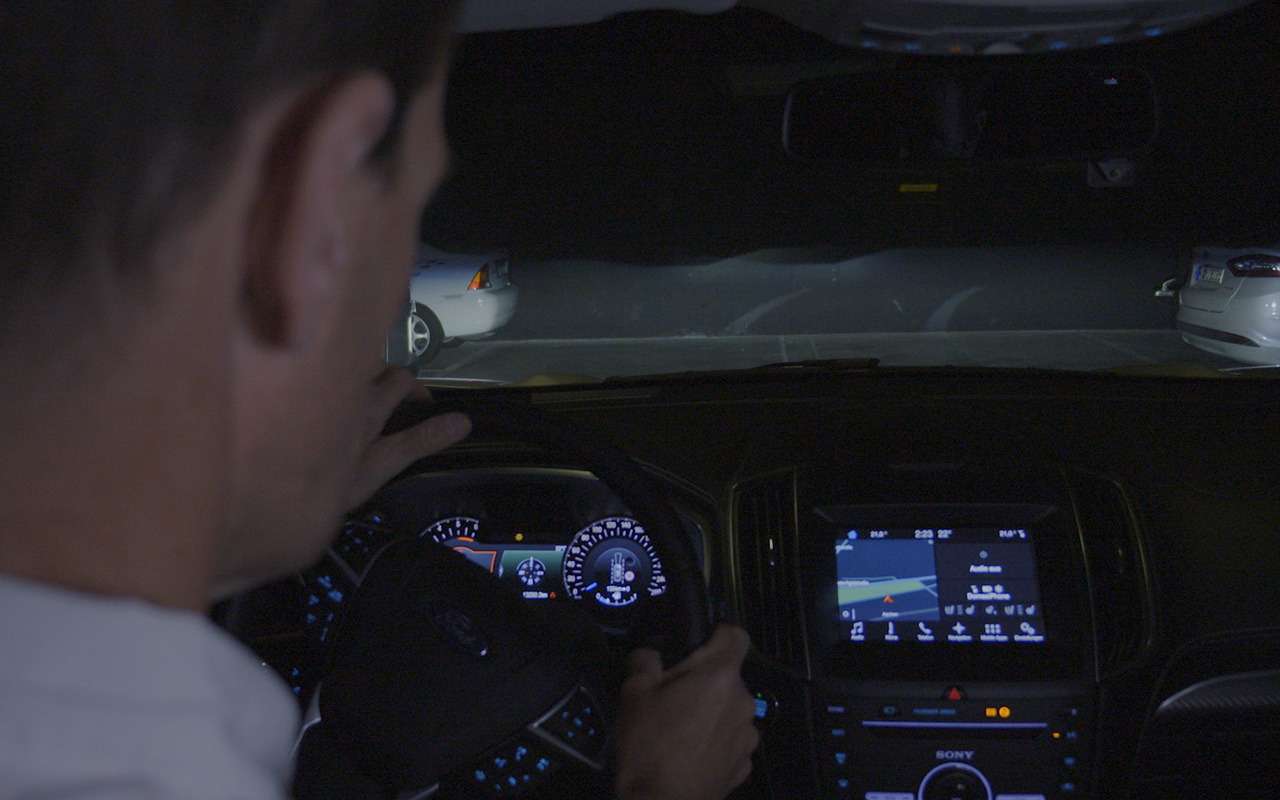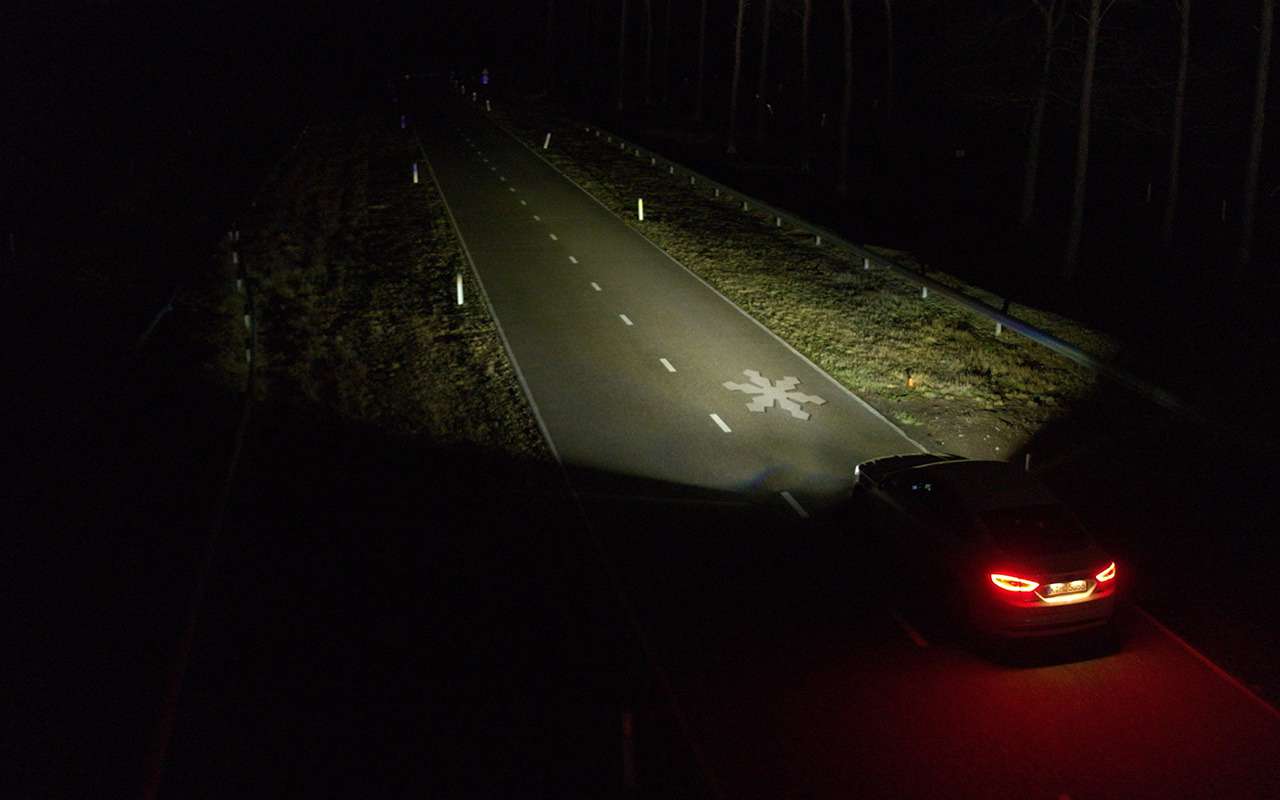Ford engineers are currently developing an all-new headlamp technology that can help drivers focus better on the road at night. In the dark, the system itself projects important information, such as directions or speed limits, onto the road surface, and the eye almost inevitably falls on the path ahead.
The risk of accidents while driving at night increases. A recent study by Ford in the UK shows that 40% of road accidents occur after dark, although far fewer people drive at night than during the day. It is dangerous for drivers to take their attention away from the road.
Example: if a car is traveling at 90 km/h, it will travel 25 meters per second. This means that even a cursory glance at the navigation device in the car can lead to you driving ten or more meters “blind”. Especially on an unlit road, an important sign or even an obstacle can be overlooked.
Headlamp projections can have another advantage. For example, a zebra crossing will be clearly visible to the driver, even if the existing road markings are faded or worn. It is also possible to display a route suggestion that a driving person can follow in order to overtake cyclists by a large enough “margin”.
Ford engineers wondered what kind of information could theoretically be projected onto the road with modern headlights to make driving at night easier. For example, with a suitable online network, the technology can warn of weather changes such as snowfall, fog, ice or icy roads. By connecting the headlight to the navigation system, you can also display upcoming bends.
Thanks to modern technology, headlamps will soon be able to illuminate much more than just the road. Using projections, the driver receives important information without taking his eyes off the road for a second, say the developers.
Ford is testing a new technology that allows drivers to keep their eyes on the road.




